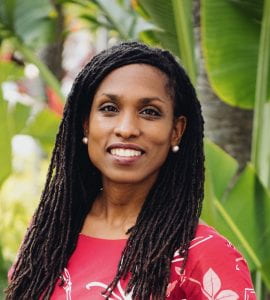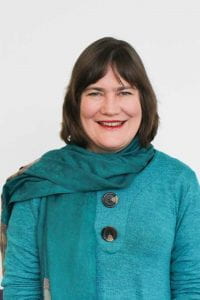Global Climate Crisis: Seeking Solutions
Virtual Conference
Tuesday April 14th, 2020
9am – 6pm
To join the conference use the following:
Virtual Conference Link: tinyurl.com/global-climate
Access Password: global2020
Learn more about the speakers and topics included in the Bahá’í Chair’s upcoming Virtual Climate Change Conference.
Conference Schedule
| 9:15-9:30 | Hoda Mahmoudi
Research Professor and Chair, The Baha’i Chair for World Peace Opening Remarks |
| 9:30 – 10:30 | Richard A. Houghton
Senior Scientist, Woodshole Research Center Land’s Potential for Limiting Climate Change |
| 10:30-11:30
|
Rathana Peou
Southeast Asia Regional Scenarios Coordinator CCAFS Discussion of the Futures of Food, Water, and Energy Securities in Southeast Asia and Anticipatory Governance Practices |
| 11:30 -11:45 | Coffee Break |
| 11:45 – 12:45 | Kyle Powys Whyte
Timnick Chair and Professor, Philosophy, Michigan State University Indigenous Energy Justice and the Climate Change Crisis |
| 12:45-14:00 | Lunch |
| 14: 00 – 15:00
|
Victoria Keener
Research Fellow, East-West Center, Honolulu HI The role of science boundary organizations in informing regional decision making and policy |
| 15:00 – 16:00
|
Maxine Burkett
Professor of Law, University of Hawai’i Manoa First Do No Harm: Climate Reparations and Guarantees of Non-Repetition |
| 16:00 – 16:15 | Coffee Break |
| 16:15-17:15
|
Melissa Nursey-Bray
Head of Geography, University of Adelaide People and the Environment: Engaging communities in environmental decision making |
| 17:15-17:30 | Closing Remarks |
Conference Speakers:
Maxine Burkett, Professor of Law, William S. Richardson School of Law, University of Hawai‘i and Global Fellow, Woodrow Wilson International Center for Scholars
First Do No Harm:Climate Reparations and Guarantees of Non-Repetition
Calls for climate reparations have moved from fringe to periphery – with center stage on the horizon. The immediate, disproportionate, and devasting, if not irreversible, impacts of climate change make calls for repair reasonable and necessary for the sake of the most climate vulnerable, particularly in the Global South. Persistent advocacy for a Loss and Damage regime, which incorporates calls for a euphemistic “rehabilitation”, have been institutionalized in the Paris Agreement. Recognition of the need for compensation from prominent and mainstream international legal scholars is sustained and growing. The appeals of the formidable youth climate movement are scaffolded on foundational demands for equity, climate justice, and reparations. This talk deeply explores and argues for the most important prong of any reparations effort, the guarantee of non-repetition. It asks the question: what does non-repetition look like in the context of global climate change and, particularly, vis-à-vis the uneven impacts on the climate vulnerable? This is an extraordinary question as it begs for an understanding of the foundational dynamics, political economies, and undergirding worldviews that have shaped contemporary life. Non-repetition of the wrong also implicates the supporting legal infrastructure and for that reason deserves focused attention in order to ensure appropriate repair.
 Maxine Burkett is a Professor of Law at the William S. Richardson School of Law, University of Hawai‘i and a Global Fellow at the Woodrow Wilson International Center for Scholars. She is also Co-Founder and Executive Director of the non-profit Institute for Climate and Peace. Burkett is an expert in the law and policy of climate change, with a specific focus on climate justice, climate-induced migration, and climate change, peace, and conflict. Her work has been cited in numerous news and policy outlets, including BBC Radio, the New York Times, the Washington Post, and Nature Climate Change. From 2009-2012, Burkett also served as the inaugural director of the Center for Island Climate Adaptation and Policy. Prof. Burkett received her B.A. from Williams College and Exeter College, Oxford University, and received her J.D. from the University of California, Berkeley. She serves on the boards of Blue Planet Foundation, The Climate Museum, ELAW, and Global Greengrants Fund, was a member of the Federal Advisory Committee for the Sustained National Climate Assessment and is a member of the Independent Advisory Committee on Applied Climate Assessment. Professor Burkett is also a member scholar of the Center for Progressive Reform, the Lancet Commission for Reparations and Redistributive Justice, and the American Law Institute.
Maxine Burkett is a Professor of Law at the William S. Richardson School of Law, University of Hawai‘i and a Global Fellow at the Woodrow Wilson International Center for Scholars. She is also Co-Founder and Executive Director of the non-profit Institute for Climate and Peace. Burkett is an expert in the law and policy of climate change, with a specific focus on climate justice, climate-induced migration, and climate change, peace, and conflict. Her work has been cited in numerous news and policy outlets, including BBC Radio, the New York Times, the Washington Post, and Nature Climate Change. From 2009-2012, Burkett also served as the inaugural director of the Center for Island Climate Adaptation and Policy. Prof. Burkett received her B.A. from Williams College and Exeter College, Oxford University, and received her J.D. from the University of California, Berkeley. She serves on the boards of Blue Planet Foundation, The Climate Museum, ELAW, and Global Greengrants Fund, was a member of the Federal Advisory Committee for the Sustained National Climate Assessment and is a member of the Independent Advisory Committee on Applied Climate Assessment. Professor Burkett is also a member scholar of the Center for Progressive Reform, the Lancet Commission for Reparations and Redistributive Justice, and the American Law Institute.
Richard A. Houghton, Senior Scientist, Woods Hole Research Center
Land’s Potential for Limiting Climate Change
Limiting climate change will require a transition from fossil to renewable forms of energy (solar, wind, water). That transition will take time, and more importantly, will continue to add carbon dioxide to the atmosphere. At current rates of fossil fuel use, emitting 10 billion metric tons of carbon per year, we have 20-30 years left before exceeding the total emissions allowable for staying below 2oC. Managing carbon on land, that is with plants and soils, cannot prevent further climate change. For that, emissions from fossil fuel must end. However, managing carbon on land can reduce the total amount of carbon dioxide emitted during the transition. There are three pathways. First, deforestation and forest degradation (D&D) must stop. Currently net emissions from D&D are responsible for 10-15% of carbon emissions, globally. However, gross emissions from D&D are responsible for 30-40%, and are largely offset by gross removals in growing forests. Second, forests must be expanded on degraded lands that once held forests. And third, existing forests must be allowed to grow. In short, primary forests must be left intact, secondary forests must be allowed to grow, and wood harvests must be limited to plantations.
 Dr. Richard A. Houghton is a senior scientist at the Woods Hole Research Center in Falmouth, Massachusetts. For more than 40 years, Dr. Houghton has studied the interactions among land management, the global carbon cycle, and climate change, participating in most of the IPCC Assessments of Climate Change, including most recently the 2019 IPCC Special Report on Climate Change and Land. His expertise is in estimating the annual sources and sinks of carbon that result from land use or management, and the potential for additional sources or sinks depending on management and climate change. His estimates combine information on the global distribution of land use, including satellite data, with an understanding of the changes in vegetation and soils that result from management. Dr. Houghton received his Ph.D. in ecology from Stony Brook University in 1979. Prior to joining the Woods Hole Research Center in 1987, he worked as a research scientist at Brookhaven National Laboratory in New York and at the Marine Biological Laboratory in Woods Hole, Massachusetts. He served as a visiting senior scientist at NASA headquarters in Washington, D.C. for two years (1993-1994).
Dr. Richard A. Houghton is a senior scientist at the Woods Hole Research Center in Falmouth, Massachusetts. For more than 40 years, Dr. Houghton has studied the interactions among land management, the global carbon cycle, and climate change, participating in most of the IPCC Assessments of Climate Change, including most recently the 2019 IPCC Special Report on Climate Change and Land. His expertise is in estimating the annual sources and sinks of carbon that result from land use or management, and the potential for additional sources or sinks depending on management and climate change. His estimates combine information on the global distribution of land use, including satellite data, with an understanding of the changes in vegetation and soils that result from management. Dr. Houghton received his Ph.D. in ecology from Stony Brook University in 1979. Prior to joining the Woods Hole Research Center in 1987, he worked as a research scientist at Brookhaven National Laboratory in New York and at the Marine Biological Laboratory in Woods Hole, Massachusetts. He served as a visiting senior scientist at NASA headquarters in Washington, D.C. for two years (1993-1994).
Victoria Keener, Research Fellow, East-West Center, Lead Principal Investigator of the NOAA Pacific Regional Integrated Sciences & Assessments (www.PacificRISA.org) Program
The role of science boundary organizations in informing regional decision making and policy
The impacts and adaptations to climate change are necessarily felt at regional and local scales, and the transformation and translation of global climate data into actionable science and policy is a crucial link to increasing community resilience. The NOAA Regional Integrated Sciences and Assessments (RISA) research program is comprised of groups in 11 regions, of which the Pacific RISA is one, covering Hawaii and the US-Affiliated Pacific Islands. The Pacific RISA is a stakeholder-oriented and interdisciplinary boundary organization that focuses on research that increases resilience in freshwater resources under climate variability and long-term change. This talk will discuss different methods and current projects across the region that facilitate the transformation of technical climate data into management and help implement climate policy, including: (1) creating an inclusive regional chapter for the 4th US-National Climate Assessment, (2) participatory scenario planning for groundwater, land-cover, and climate projections for the island of Maui, Hawaii, (3) integrating climate, health, and migration planning into the national response plan for the Republic of the Marshall Islands, and (4) an overview of county and state level initiatives that are beginning to address climate impacts, and where targeted leadership and activism has been making a difference at different scales across Hawaii.
 Dr. Victoria Keener is a Research Fellow at the East-West Center, the Lead Principal Investigator of the NOAA Pacific Regional Integrated Sciences & Assessments (www.PacificRISA.org) program, and is the Lead Author of the Hawaii and US-Affiliated Pacific Islands chapter of the 4th US National Climate Assessment. Dr. Keener also serves as one of five members of the City and County of Honolulu Climate Commission, which provides science-based recommendations to the Mayor and City Council. She earned a PhD in Agricultural & Biological Engineering from the University of Florida, specializing in hydro-climatological research. Dr. Keener leads an interdisciplinary research team of social and physical scientists that aims to reduce Pacific Islands’ vulnerability to climate change by translating research into actionable knowledge and working with a variety of stakeholders at the local, state, and regional level. Projects include producing downscaled climate and hydrological projections to estimate future water availability; assessing stakeholders’ decision-support needs and their capacity to use seasonal forecasts; impacts of climate and health on migration; and ecosystem service valuation and modeling.
Dr. Victoria Keener is a Research Fellow at the East-West Center, the Lead Principal Investigator of the NOAA Pacific Regional Integrated Sciences & Assessments (www.PacificRISA.org) program, and is the Lead Author of the Hawaii and US-Affiliated Pacific Islands chapter of the 4th US National Climate Assessment. Dr. Keener also serves as one of five members of the City and County of Honolulu Climate Commission, which provides science-based recommendations to the Mayor and City Council. She earned a PhD in Agricultural & Biological Engineering from the University of Florida, specializing in hydro-climatological research. Dr. Keener leads an interdisciplinary research team of social and physical scientists that aims to reduce Pacific Islands’ vulnerability to climate change by translating research into actionable knowledge and working with a variety of stakeholders at the local, state, and regional level. Projects include producing downscaled climate and hydrological projections to estimate future water availability; assessing stakeholders’ decision-support needs and their capacity to use seasonal forecasts; impacts of climate and health on migration; and ecosystem service valuation and modeling.
Melissa Nursey-Bray, Associate Professor, Interim Head of School, Social Sciences and Department of Geography, Environment and Population, University of Adelaide, South Australia
People and the Environment (Engaging Communities in Environmental Decision Making)
Across the world, different societies and cultures are facing the different yet powerful impacts of climate change with Indigenous peoples confronting a myriad of challenges- to their way of life, knowledge and culture. This paper offers some reflections on how different cultural perspectives can inform adaptation responses to climate change. In so doing, the role of conflict, knowledge, communications and geography is explored. Case studies of Australian Indigenous experience as well as community responses to the recent bushfires are presented to illuminate what communities and cultures bring to building future resilience and adaptive capacity. I argue that the navigation and incorporation of multiple perspectives in climate adaptation provides fertile opportunities for social learning and reconciliation of conflict in ways that will build towards more peaceful engagement between people and place.
 Trained as a historian, Melissa Nursey-Bray now works as a human geographer and brings the richness of both disciplines to her work in community engagement which includes over 20 years’ experience working with Indigenous communities on natural resource management. Her enduring focus has been on establishing how to engage and support communities to have a voice in and actively participate as members of environmental decision-making policy fora. For the last ten years she has also focussed on community adaptation to climate change, and in that capacity has led work on the role of knowledge and conflict as drivers in fishing, local government and Indigenous communities.
Trained as a historian, Melissa Nursey-Bray now works as a human geographer and brings the richness of both disciplines to her work in community engagement which includes over 20 years’ experience working with Indigenous communities on natural resource management. Her enduring focus has been on establishing how to engage and support communities to have a voice in and actively participate as members of environmental decision-making policy fora. For the last ten years she has also focussed on community adaptation to climate change, and in that capacity has led work on the role of knowledge and conflict as drivers in fishing, local government and Indigenous communities.
Rathana Peou, Southeast Asia Regional Scenarios Coordinator
Discussion of the futures of food, water and energy securities in Southeast Asia and anticipatory governance practices
Climate Change is projected to impact human and natural systems, with differential consequences across regions, economic sectors and time. The magnitude and extent of future impacts depends not only on the dynamics of the earth system but on socio-economic developments too and current resilience of systems we live in. If the concept of Water- Energy- Food (WEF) nexus is not a new one, its analytical framework provides critical support while assessing multiple futures under climate threats and its impact on fundamental human rights. The nexus perspective increases the understanding of the interdependencies across the water, energy and food sectors. It allows decision-makers to develop appropriate policies, strategies and investments, to explore and exploit synergies, and to identify and mitigate trade-offs among the development goals, paired with anticipatory governance it could build robust and climate proof policies today for a resilient tomorrow. By looking at a specific region, Southeast Asia, which high vulnerability to climate change and its impacts have repeatedly been detrimental, in particular along the deltas, islands and low-lying coastal areas where a significant proportion of the population resides, and economic activity has been developing this lecture aims at building knowledge on the WEF nexus, climate foresight and anticipatory governance in water, energy and food sectors. It will discuss how policy makers in this region are addressing climate change and translating futures and uncertainties in policies and planning related to those key sectors.
 Dr. Rathana Peou Norbert-Munns has worked at Utrecht University with the Copernicus Institute as a Policy Researcher and as the Southeast Asia Scenarios Coordinator at CCAFS* since 2017, prior to which she was attached to Oxford University at the Environmental Change Institute (ECI). She joined the CCAFS scenarios team in 2012, first as the Scenarios Coordinator for South Asia and is now based in Cambodia where she provides technical support on Climate Smart Agriculture and builds capacity on foresight-based policy formulation in Agriculture, Food Security and Climate Change. Dr. Rathana’s research interests lies in the “4 inviolate principles”: food security, water security, energy security and social “health” security. Her current research concerns the futures of Food Security, Agriculture and Climate Change in the ASEAN. She holds a PhD in Political Science majoring in Philosophy. Prior to joining the CCAFS team she worked for 3 years in Bangladesh where she was the deputy director of the Center for Sustainable Development (CSD) and an associate professor at ULAB. Before 2009, Rathana worked as an international consultant and humanitarian worker in Sudan, Pakistan and Bangladesh. She has 12 years of experience working in development and policy formulation. She consulted for agencies such as DFID, USAID, ECHO, DIPECHO, AFD, EU, ADB, CTA and different INGOs and NGOs.
Dr. Rathana Peou Norbert-Munns has worked at Utrecht University with the Copernicus Institute as a Policy Researcher and as the Southeast Asia Scenarios Coordinator at CCAFS* since 2017, prior to which she was attached to Oxford University at the Environmental Change Institute (ECI). She joined the CCAFS scenarios team in 2012, first as the Scenarios Coordinator for South Asia and is now based in Cambodia where she provides technical support on Climate Smart Agriculture and builds capacity on foresight-based policy formulation in Agriculture, Food Security and Climate Change. Dr. Rathana’s research interests lies in the “4 inviolate principles”: food security, water security, energy security and social “health” security. Her current research concerns the futures of Food Security, Agriculture and Climate Change in the ASEAN. She holds a PhD in Political Science majoring in Philosophy. Prior to joining the CCAFS team she worked for 3 years in Bangladesh where she was the deputy director of the Center for Sustainable Development (CSD) and an associate professor at ULAB. Before 2009, Rathana worked as an international consultant and humanitarian worker in Sudan, Pakistan and Bangladesh. She has 12 years of experience working in development and policy formulation. She consulted for agencies such as DFID, USAID, ECHO, DIPECHO, AFD, EU, ADB, CTA and different INGOs and NGOs.
Kyle Powys Whyte, Professor & Timnick Chair, Department of Philosophy / Department of Community Sustainability, Michigan State University
Indigenous Energy Justice and the Climate Change Crisis
In work on climate change adaptation there is an active discussion of Indigenous knowledge systems. At the same time, regarding discussions on the solutions to mitigate climate change, Indigenous energy systems – their history or philosophies of them – are rarely even noted. Indigenous energy systems have long traditions in the careful tending of landscapes to support ecological flows relating to areas such as water or soil composition. These systems were not just distinguished from carbon intensive energy systems based on drawing from different sources or reserves. They differed importantly on the very meaning of energy. Instead of energy being a facilitator of mobility, which only people who have access to such energy can harness, energy itself was more likely to be defined as the exercise of justice. I will argue how indigenous approaches to energy justice can support solutions that would work on behalf of Tribes living in the U.S. sphere, especially as recent proposals, such as the Green New Deal, are being considered, with minimal details pertaining to how they relate to indigenous peoples. Indigenous energy systems are critical both for adaptation and mitigation issues.

Kyle Whyte is Professor and Timnick Chair at Michigan State University. His research addresses moral and political issues concerning climate policy and Indigenous peoples, the ethics of cooperative relationships between Indigenous peoples and science organizations, and problems of Indigenous justice in public and academic discussions of food sovereignty, environmental justice, and the anthropocene. He is an enrolled member of the Citizen Potawatomi Nation. Kyle has partnered with numerous Tribes, First Nations and inter-Indigenous organizations in the Great Lakes region and beyond on climate change planning, education and policy. He is involved in a number of projects and organizations that advance Indigenous research methodologies, including the Climate and Traditional Knowledges Workgroup, Sustainable Development Institute of the College of Menominee Nation, Tribal Climate Camp, and Ngā Pae o te Māramatanga. He has served as an author on reports by the U.S. Global Change Research Program and is former member of the U.S. Federal Advisory Committee on Climate Change and Natural Resource Science and the Michigan Environmental Justice Work Group. Kyle’s work has received the Bunyan Bryant Award for Academic Excellence from Detroiters Working for Environmental Justice and MSU’s Distinguished Partnership and Engaged Scholarship awards, and grants from the National Science Foundation.
You can register for the conference here.
You can find out more about the Bahá’í Chair by watching our video here.
